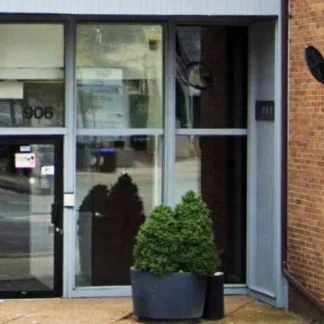Innovative Healthcare
Innovative Healthcare is a private rehab located in Skokie, Illinois. Innovative...
PEER Services provides outpatient substance use treatment for alcohol and other drugs to teens (12+) and adults of all ages who live in Illinois. We provide individual and group counseling in person and via telehealth, including an Intensive Outpatient Program. We also provide medication-assisted treatment (MAT) for opioid use disorder onsite.
Since 1975, PEER Services has provided community-based substance use prevention and treatment services to the residents of Evanston, Northfield, New Trier, Maine and Niles Townships, and the north side of Chicago. We also treat clients from other Illinois communities.
We accept clients regardless of their insurance status or financial resources and make treatment possible for all through public insurance, grants and fundraising, and sliding scale fees.
Our mission is to reduce the harms of substance use, addiction and stigma by engaging youth and adults with innovative prevention programming and by supporting people on their path to recovery through holistic, evidence-based treatment. We provide affirming services to all in need, regardless of their ability to pay.
We meet clients where they are and help them to envision recovery and then progress toward their personal goals.
We are committed to delivering quality services designed to meet the needs of the individuals, families, and communities we serve. We utilize the best practices in the field. We value professional development and ensure staff members remain up-to-date on the cutting-edge research and advances in the prevention and treatment of substance use disorders.
All therapists are licensed practitioners with Master’s degrees. Several have been recognized for excellence in the field by statewide organizations, including the Illinois Association for Behavioral Health and the Illinois Association for Medication-Assisted Addiction Treatment.
We are not able to accept clients from out-of-state and will not able to return inquiries from individuals seeking treatment who live outside Illinois.
Contact us for more information: (847) 492-1778

Connect with Peer Services by calling their admissions team directly.
(847) 492-1778 Website Get DirectionsThe Substance Abuse and Mental Health Services Administration (SAMHSA) is a branch of the U.S. Department of Health and Human Services. Established in 1992 by congress, SAMHSA's mission is to reduce the impact of substance abuse and mental illness on American's communities.
SAMHSA Listed: Yes
Group therapy is any therapeutic work that happens in a group (not one-on-one). There are a number of different group therapy modalities, including support groups, experiential therapy, psycho-education, and more. Group therapy involves treatment as well as processing interaction between group members.
Trauma therapy addresses traumatic incidents from a client's past that are likely affecting their present-day experience. Trauma is often one of the primary triggers and potential causes of addiction, and can stem from child sexual abuse, domestic violence, having a parent with a mental illness, losing one or both parents at a young age, teenage or adult sexual assault, or any number of other factors. The purpose of trauma therapy is to allow a patient to process trauma and move through and past it, with the help of trained and compassionate mental health professionals.
Trauma therapy addresses traumatic incidents from a client's past that are likely affecting their present-day experience. Trauma is often one of the primary triggers and potential causes of addiction, and can stem from child sexual abuse, domestic violence, having a parent with a mental illness, losing one or both parents at a young age, teenage or adult sexual assault, or any number of other factors. The purpose of trauma therapy is to allow a patient to process trauma and move through and past it, with the help of trained and compassionate mental health professionals.
Innovative Healthcare is a private rehab located in Skokie, Illinois. Innovative...
Community Counseling Center – C4 Winthrop is a private rehab located in Chicago,...
Alon Treatment Center offer substance abuse treatment in an outpatient setting. ...
Tapestry 360 Health – Devon is a private rehab located in Chicago, Illinois. Tap...